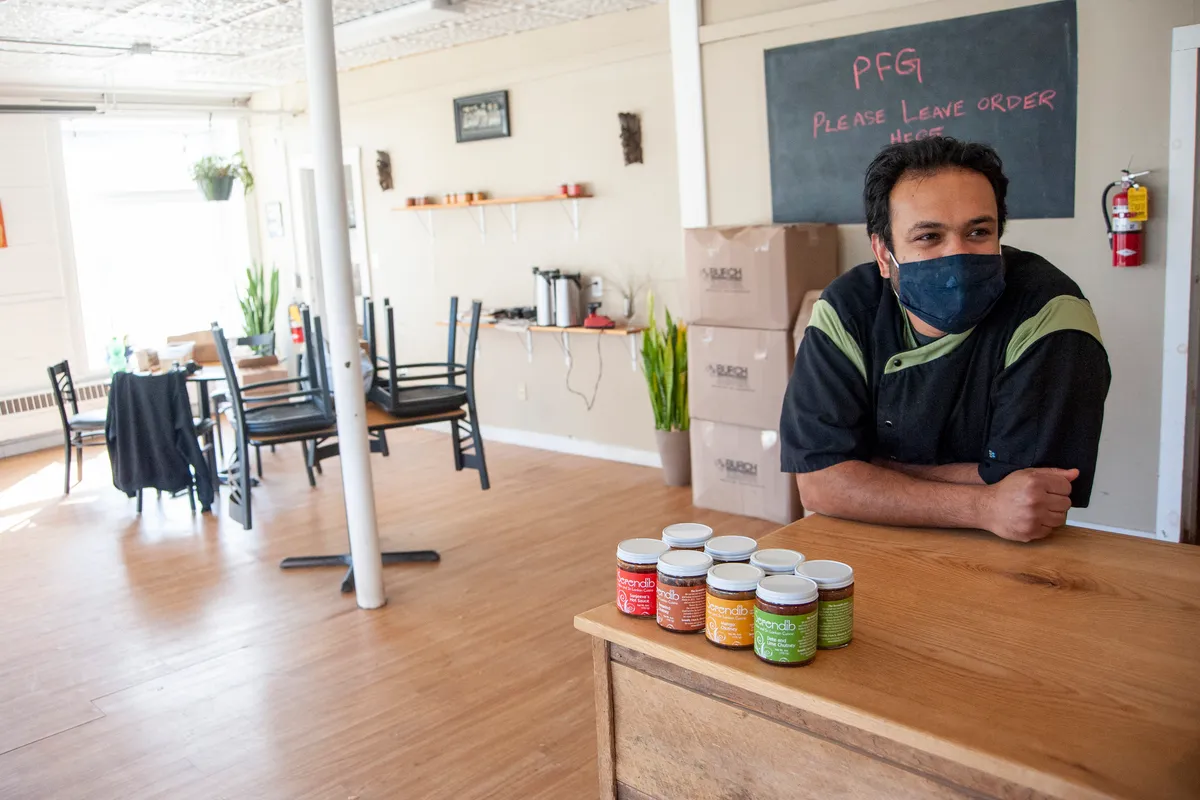
Serendib was a staple of the Ellsworth restaurant scene for a decade.
During that time, Sanjeeva Abeyasekera and his family spent hours making and serving Sri Lankan dishes.
Even more hours were spent behind the scenes, working what Abeyasekera said was a “taxing” job of running the restaurant.
That’s why the family announced this week that Serendib is closing its doors on Dec. 20.
It’s one of four restaurants in eastern Maine to announce in the last two weeks that they are closing before the end of the year — or in some cases, immediately.
It’s not atypical for restaurants to close in fall because of their dependency on Maine’s tourism season, but this wave comes after a summer marred by declining Canadian tourism, early rainy weekends and tariffs that raised prices in the middle of an ongoing economic downturn. However, none of the recently closed restaurants cited these in their reasons for closing.
In addition to Serendib, Evenrood’s in Bangor, My Buddy’s Place in Bucksport and MeMe G’s in Old Town all announced within the last week that they are closing.
Evenrood’s was the longest tenured of the group, having been open to diners for 15 years and now being set to close Dec. 31. My Buddy’s Place will close on Sept. 30 and MeMe G’s announced its immediate closure on Monday.
My Buddy’s Place and MeMe G’s were open for one and three years, respectively.
Evenrood’s announcement didn’t give a reason for the closure while My Buddy’s Place cited a “variety of ongoing issues, one of them being health.”
MeMe G’s owners said they were closing to spend more time with their family.
Restaurant closures have historically come during economic downturns, like the one Maine is experiencing, but shouldn’t be seen as an indicator that others will close too, Jessica Picard, communications director for the Maine Department of Labor, said.
Mark Zandi, chief economist at Moody’s Analytics, recently placed Maine on a list of 22 states that are “in or at high risk of suffering a recession.”
The economic slowdown is forcing people to cut back their spending, adversely affecting the restaurant industry in Maine, Picard said.
Serendib didn’t see major changes in costs or its customer base this year, but Abeyasekera said he saw changes in how customers dine out that could have been factors in other closures.
“People that used to eat in three different places might say ‘Well, we want to tighten up a little bit. Now we can only eat in two different places,’” Abeyasekera said.
Restaurants need to be offering a “quality product” to win over customers that are watching their spending, Abeyasekera said.
Some restaurants may have been banking on having a strong summer season but were caught off guard by the wet weather to start the tourist season, Becky Jacobson, executive director of Hospitality Maine, said.
Restaurants in southern Maine are less likely to close their doors because they’re supported more by tourists from more southern states and Mainers taking staycations, but more northern restaurants have suffered from the lack of Canadian customers, Jacobson said.
There was also an increase of tourists post-pandemic in 2021, 2022 and for part of 2023 that propelled restaurants to larger profits that haven’t been seen in recent years, she said.
Higher food costs and utilities would also cut into restaurants’ already-thin profit margins.
“If you’re operating on those kinds of margins, many restaurants are operating on 3% or less profit margins, that’s keeping your weight very close to the edge at all times,” Jacobson said.
Serendib didn’t raise its prices this past year despite growing food order and utility costs because margins for the restaurant didn’t change enough to warrant it, Abeyasekera said.
Tourists visited the restaurant at the same rate as past years, Abeyasekera said, despite Canadian border crossings decreasing by nearly 30% in August compared with last year, according to data released by the U.S. Customs and Border Protection.
The lack of Canadian tourists had “no impact at all” on Serendib, he said.
Despite the closures, Jacobson said those spaces will be filled with new restaurants, balancing out the options in many towns across Maine.
“[Restaurant and hospitality] is one of the most resilient industries out there and it’s been built by optimistic business owners, so inevitably, there will be somebody else who wants to give it a shot and come in,” Jacobson said.



